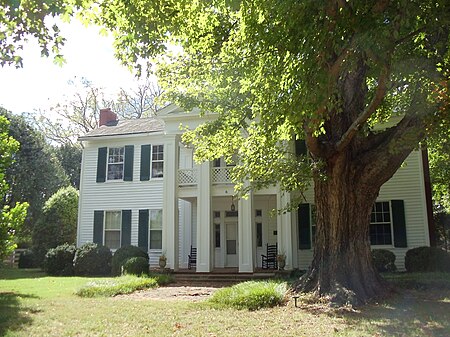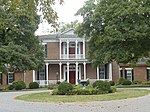The Islamic Center of Murfreesboro (ICM) is an Islamic community organization located in the town of Murfreesboro, Tennessee, United States. Established in the early 1980s, the ICM supports about a thousand congregants, drawn from local permanent residents and numerous students at Middle Tennessee State University.
Since the late 20th century, an increasing number of Muslim immigrants from Somalia and Iraq have settled in the city, and international students have increased. By 2009, the ICM's growth made the existing mosque and community center in central Murfreesboro inadequate for the number of worshippers using those facilities. The ICM bought a vacant lot on the outskirts of the city and submitted plans to build a new community center and mosque on the site. Although the plans were approved unanimously by the local county planning commission, some local residents and anti-Muslim groups opposed the project. Rival demonstrations were held in the town to express support for and opposition to the mosque project.
During the following two years, the mosque site was subjected to vandalism and arson. The ICM became the subject of heightened political rhetoric in an election year. Numerous opponents alleged that the ICM would support terrorism. At the same time, numerous local people and rights groups spoke out in support of the project, and the issues received national media coverage with emphasis on the US constitutional right to religious freedom. A local judge rejected that claim and found that the planning commission did not act improperly in granting approval, but that public notice of the planning commission's hearing on the action may have been inadequate. The court prohibited the issuance of a certificate of occupancy necessary to use the building. In August 2012, a US federal court lifted the county court's prohibition, saying it was inappropriate to subject the ICM to requirements in excess of other religious organizations. The mosque was allowed to open in time for the end of Ramadan in 2012. Further appeals and new lawsuits by the mosque's opponents prolonged the litigation until June 2014, when the last lawsuits were finally dismissed by the federal courts.









